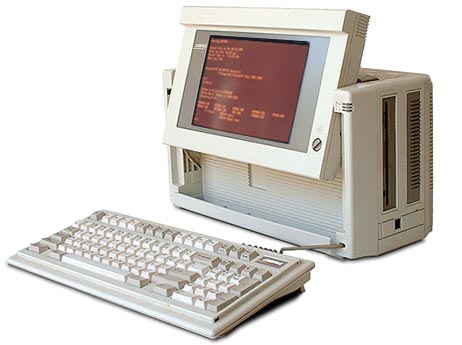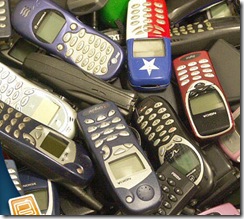iPhone, Compaq and Nokia

My friend Elizabeth gave me temporary custody of her iPhone last week. It is an impressive piece of technology -- smart, fast, graphics, touchable and just plain cool.
 As I was playing with it I flashed on my first portable PC. It was the size of a small suitcase and could be carried anywhere. I was younger then and spent more time at the gym. I loved it!
As I was playing with it I flashed on my first portable PC. It was the size of a small suitcase and could be carried anywhere. I was younger then and spent more time at the gym. I loved it!
 I suspect that in a few years I will think about my current 20 inch laptop with the same sort of nostalgic half smile. It is so very clear to me that the iPhone (or something like it) is the computing device of the future.
I suspect that in a few years I will think about my current 20 inch laptop with the same sort of nostalgic half smile. It is so very clear to me that the iPhone (or something like it) is the computing device of the future.
Which brings me to Nokia. According to Reuters, Nokia, the biggest cellphone maker, is planning to produce laptops.
At first I was really taken aback. It seems counterintuitive to me to try and leverage your mobile phone base into PC's. Actually it seems downright backwards.
But then again, maybe not. A lot of companies have been playing with a tablet computer, but so far, no one has really gotten it right. Nokia is in a unique position to get it right. . .
 Nokia smartphones have screen technology down to a science, integrate voice commands and intelligently integrate phone and computing functions. And they understand small tight operating systems better than anyone. The Symbian OS is a marvel all by itself!
Nokia smartphones have screen technology down to a science, integrate voice commands and intelligently integrate phone and computing functions. And they understand small tight operating systems better than anyone. The Symbian OS is a marvel all by itself!
This picture from MobileLinuxInfo probably says it all:

 This morning, the New York Times
This morning, the New York Times





